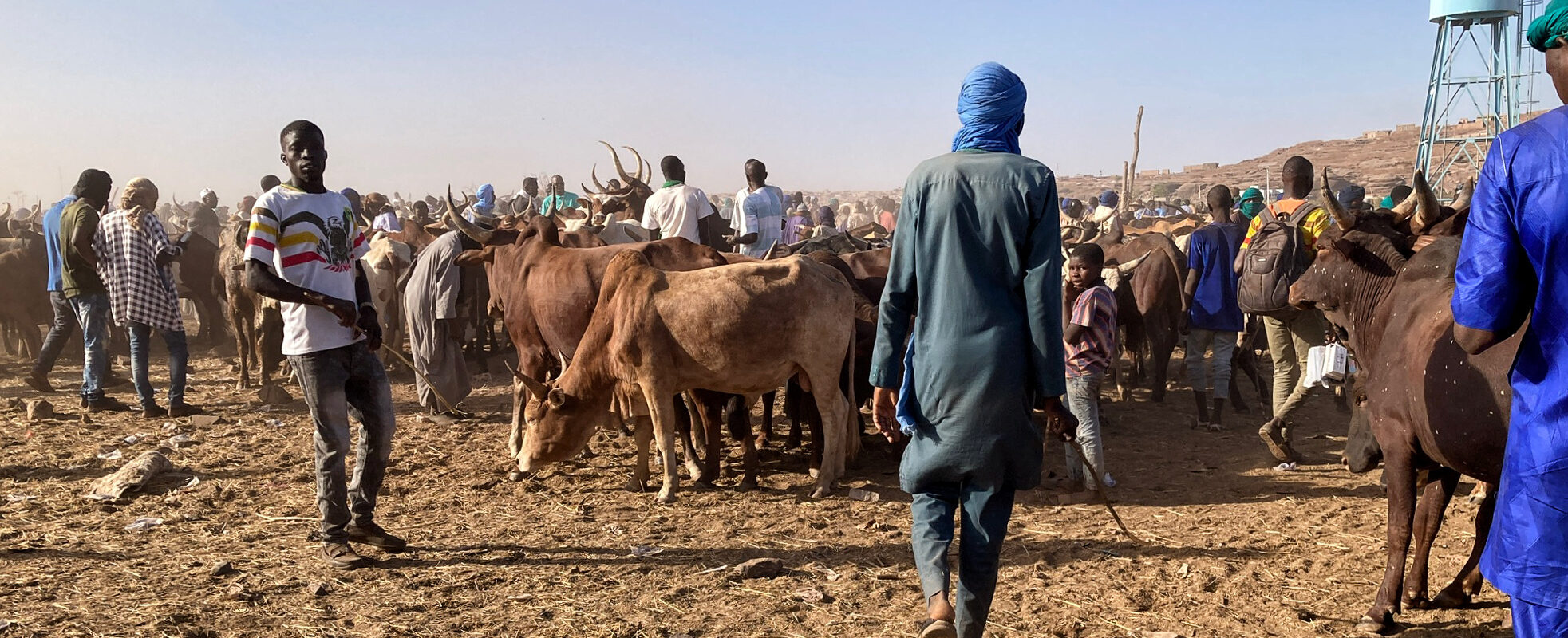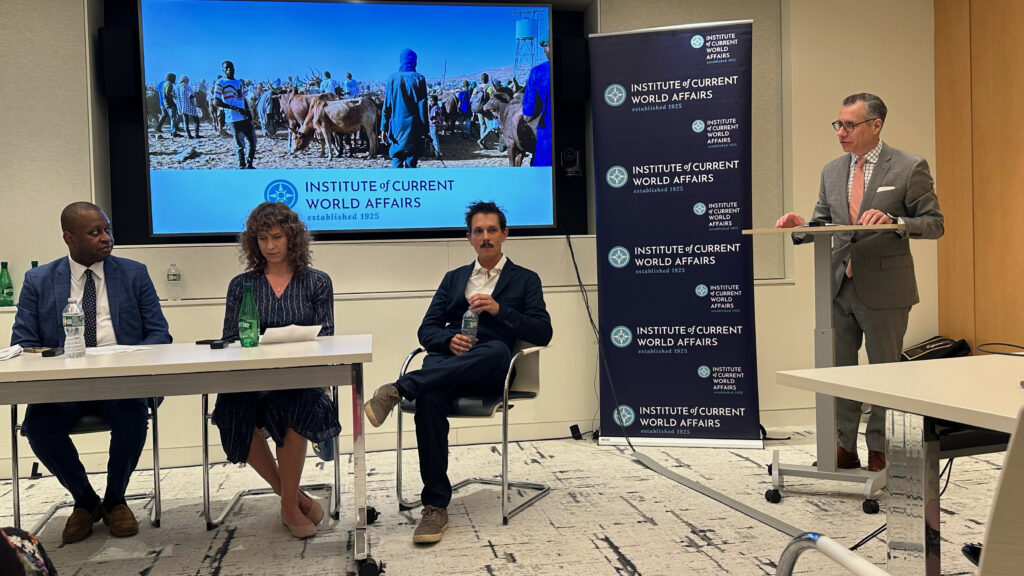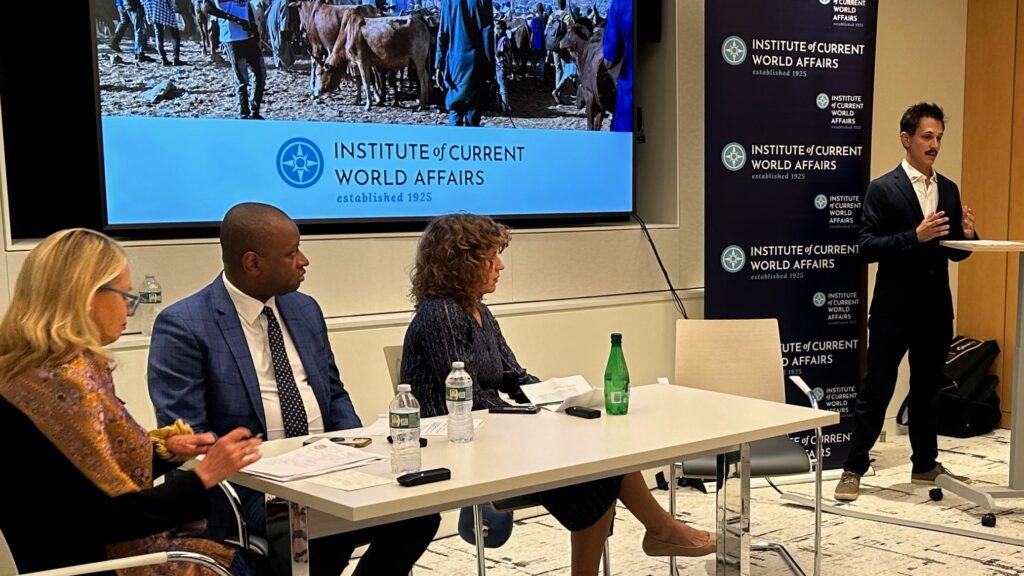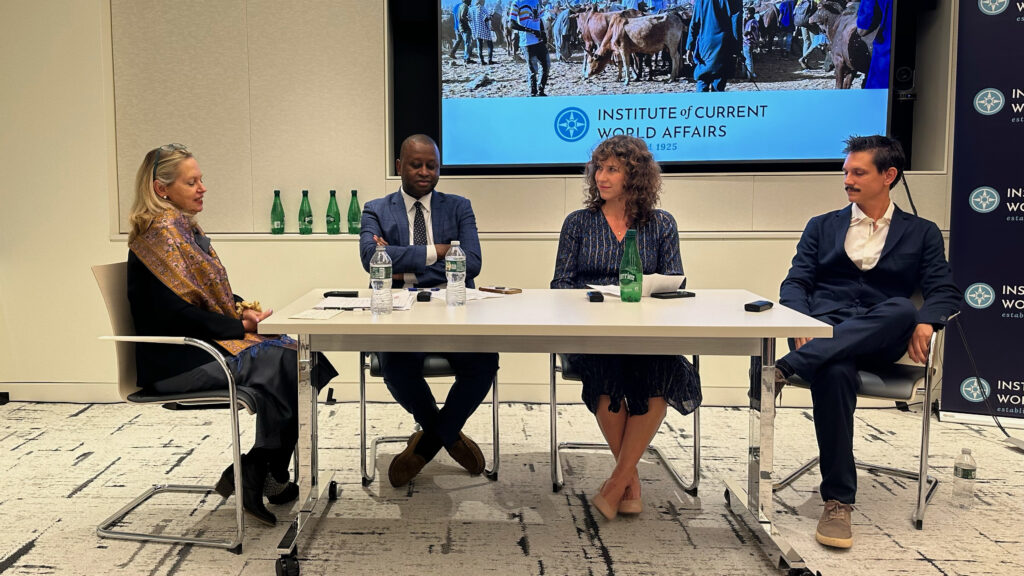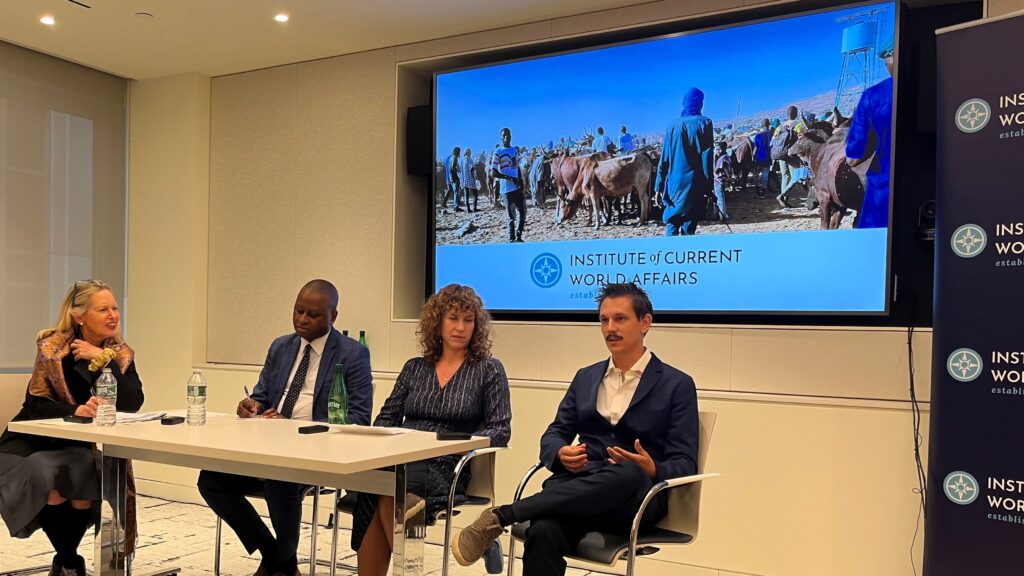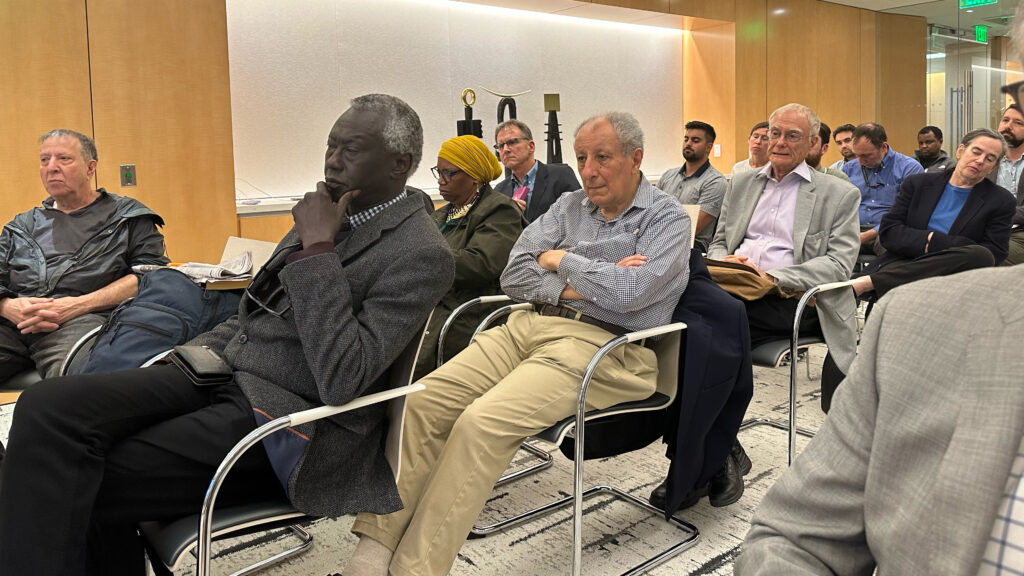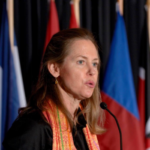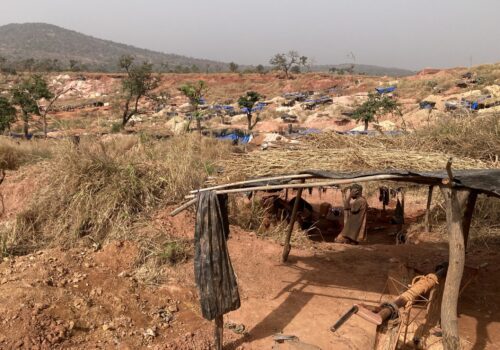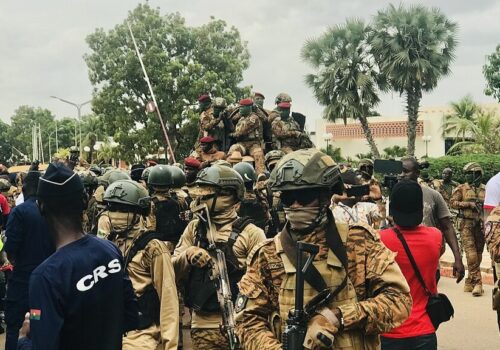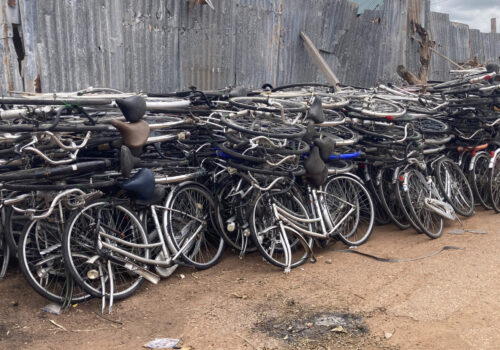Returning ICWA fellow James Courtright takes issue with the term “farmer-herder-conflict,” widely used by news media, governments and Western NGOs to describe the provenance of violence in West Africa.
James spent a highly illuminating two years deep in the field across the region studying challenges faced by Fulani societies—the world’s largest pastoralist group—including climate change, discriminatory governments and increasing jihadist activity, and what it reveals about the roots of conflict and other major developments in the region’s countries.
He finds the farmer-herder dichotomy reductive and misleading. “Farmer and herder are not mutually exclusive categories,” he said, reporting about his fellowship in Washington, DC on May 17. “While people often say ‘herder’ as a code word for Fulani, they are not the only herders in West Africa. And there are actually far more Fulani farmers than herders.”
Grouping people into factions makes it appear they’re coordinating their actions, he added, framing that affects proposed solutions. He suggests looking to longstanding local, traditional arrangements for ideas instead of imposing measures from outside.
Following his talk, James joined a panel discussion with former fellow and leading regional analyst (and James’s partner) Hannah Rae Armstrong (Sahel, 2012-2014) and the World Bank’s Abdoul Salam Bello, a Fulani himself, moderated by ICWA trustee Catherine Rielly.
Hannah raised the importance of studying Fulani border communities at a time when military and security resources are being moved to the region. “Militarized approaches to countering terrorism often lead to outbreaks or escalations of conflict,” she said.
Bello emphasized the need for local leadership in preventing conflict. “The state must be able to ensure proper governance of the land and natural resources, but also of the populations’ access and social contracts,” he said. Observers should also refrain from portraying the Fulani as disenfranchised, he added.
After finishing his fellowship in December, James has begun work with the Dutch think-tank Clingendael, part of a team researching jihadist insurgent infiltration in northern Ghana. He’s also working on a project funded by the British High Commission in Accra, researching the contributions of livestock markets to local economies in northern Ghana, and the role of marginalized Fulani in Ghanaian society. And he plans some long-form writing based on his reporting during his ICWA travels.
Read James’s dispatches here.
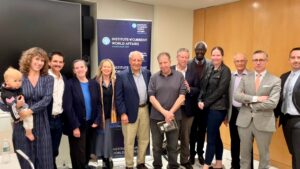
Speaker
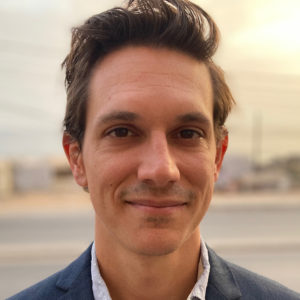 James Courtright spent two years studying challenges faced by Fulani societies across West Africa—the largest pastoralist community in the world—including climate change, discriminatory governments, increasing jihadist activity and evolving dynamics within Fulani societies. James grew up between East Africa and the United States. He holds a bachelor’s degree from Denison University and a master’s from Columbia University’s School of International and Public Affairs. He’s served as a Peace Corps volunteer in Senegal, written for NPR, The Christian Science Monitor and Roads & Kingdoms, and worked with Gambian civil society alongside the country’s truth commission.
James Courtright spent two years studying challenges faced by Fulani societies across West Africa—the largest pastoralist community in the world—including climate change, discriminatory governments, increasing jihadist activity and evolving dynamics within Fulani societies. James grew up between East Africa and the United States. He holds a bachelor’s degree from Denison University and a master’s from Columbia University’s School of International and Public Affairs. He’s served as a Peace Corps volunteer in Senegal, written for NPR, The Christian Science Monitor and Roads & Kingdoms, and worked with Gambian civil society alongside the country’s truth commission.
Panelists
 Abdoul Salam Bello is executive director of the Africa Group II at the World Bank Group Board of Directors and a nonresident senior fellow at the Atlantic Council’s Africa Center. An expert in economic development, multilateral trade cooperation and diplomacy, he was previously senior project officer at the United Nations Convention to Combat Desertification (UNCCD), leading a land restoration program in the Sahel. His books include Les Etats-Unis et l’Afrique, de l’esclavage à Obama and La régionalisation en Afrique: Essai sur un processus d’intégration et de développement.
Abdoul Salam Bello is executive director of the Africa Group II at the World Bank Group Board of Directors and a nonresident senior fellow at the Atlantic Council’s Africa Center. An expert in economic development, multilateral trade cooperation and diplomacy, he was previously senior project officer at the United Nations Convention to Combat Desertification (UNCCD), leading a land restoration program in the Sahel. His books include Les Etats-Unis et l’Afrique, de l’esclavage à Obama and La régionalisation en Afrique: Essai sur un processus d’intégration et de développement.
Hannah Rae Armstrong is a writer and adviser on peace and security in the Sahel, Maghreb and Western Sahara. A former ICWA fellow (Sahel, 2012-2014), she was a senior consulting analyst for the International Crisis Group and a Fulbright fellow in Morocco. She has written for The International New York Times, The New Republic, and Financial Times.
Moderator
Catherine Rielly is an ICWA trustee and executive director of Rubia, an NGO that promotes women’s economic empowerment, education and health in Mali, Afghanistan and Palestine. A political economist, she has taught policy analysis, refugee and gender issues, and international community economic development at the graduate level; advised the governments of Mali, Zambia, and the US; and done comparative research on policy in over twenty countries.
‘West Africa’s Fulani’ text
I spent two years traveling across West Africa, spending time with diverse Fulani communities—the world’s largest pastoralist group—and writing about the challenges they face. During my research, one overarching theme was the notion of so-called “farmer-herder conflicts.” This problematic term refers to altercations between communities that are sparked by either livestock wandering into a field and destroying crops, or someone killing livestock belonging to herders. In places like southern Senegal, this usually leads to nothing more than a harsh exchange of words and a payment. But in other places, like Nigeria, crop damage and livestock killing have led to cycles of retaliatory attacks in which hundreds of people are killed.
The more time I spent learning about these incidents from participants on the ground and comparing those accounts to how they were described by media, NGOs, government and even sometimes researchers, I found myself taking issue with the phrase “farmer-herder conflict.” Words matter, and condensing diverse communities, complicated histories and ethnic co-dependence in the phrase “farmer-herder conflict” is not only reductive, but can stigmatize entire communities, preclude potential solutions, and instead increase the chances of clashes breaking out.
My first issue with the “farmer-herder” dichotomy is how it reduces complicated and diverse communities to simple categories based on livelihood. In West Africa, farmer and herder are not mutually exclusive. Many herders also use the rainy season to grow grains, while many farmers also keep livestock like goats and sheep. Additionally, while people often use “herder” as code for “Fulani,” not all herders are Fulani.
Fulani (known as Fulbe in their languages and Peul in francophone Africa) are an ethno-linguistic community of 30 million people spread across West Africa from Senegal to Sudan—the same distance between California and New York. Fulani are united by a series of languages known as Pulaar/Fulfulde, and the vast majority are Muslim. Perhaps most important, Fulani share a history of coming from nomadic pastoralists who migrated annually with their livestock following rains and pasture.
However, Fulani are hardly a homogenous community. They are divided across at least 17 countries and have at least a dozen linguistic and cultural subgroups. Historically, many Fulani communities had “caste” systems that divided people into slaves, artisans and elites, but those have mostly faded, albeit to different degrees. While Fulani are often associated with herding livestock, there are many more Fulani farmers than herders. Furthermore, in places like Senegal, Guinea and Sierra Leone, Fulani comprise a trade-based minority, importing and exporting goods and running a massive network of small corner shops.
The label “farmer-herder conflict” leads people to aggregate all these conflicts and their belligerents when in reality, the violence occurs as disparate, unconnected events. Fulani involved in so-called farmer-herder conflict in central Nigeria are not coordinating their actions with Fulani involved in similar altercations in neighboring Benin, let alone with communities over 1,000 miles away in Burkina Faso and Mali. However, when the Institute for Economics and Peace (an Australian-based global think-tank) compiled its Global Terrorism Index in 2015, it lumped all violence under one perpetrator and identified “Fulani militias,” as the fourth-most deadly terrorist group in the world. That faulty statistic has been quoted ad-nauseum by anti-Fulani propagandists and even found its way into reputable newspapers.
Speaking with Fulani herders in eastern Nigeria in March 2023—some of whom had been involved in clashes with farmers as both victims and perpetrators—I asked if they were coordinating with Fulani in other parts of Nigeria or West Africa. They laughed in my face, pointing out that they also had clashes with other Fulani communities. During our conversation, they were more frustrated when speaking about how they felt misrepresented and betrayed by national Fulbe associations than when discussing clashes with neighboring farmers. Nevertheless, it is common to hear claims that all Fulani are working together to attack Christian farmers. As a result, there have been incidents where violence committed by Fulani in one area led to non-Fulani attacking Fulani in nearby towns under the assumption that all Fulani are conspiring.
Another issue with the “farmer-herder conflict” framing is that it implies that people’s livelihoods are the cause of the conflict, that farmers and herders sharing land will inevitably clash. However, this is not borne out by the record. Instead, there is a long history of peaceful symbiotic relations between people who migrate with their livestock and people who settle and farm. In the diina system in central Mali—established in the early 1800s—traditional leaders known as dioro managed parcels of land in the fertile Niger delta, allocating portions of fishing, farming and herding depending on the time of year and mediating any disputes. In central Nigeria, the annual arrival of herders was once celebrated in farming communities who enjoyed the milk products and increased soil fertility herders brought with them—not to mention the chance to see old friends.
Yet the fact remains that sometimes a cow wandering into a field or a farmer killing livestock does spark violence, and there is an impression in many parts of the region that it has become worse over the last two decades. However, based on countless conversations with people across West Africa, the culprit for the perceived rise in violence is not ethnicity or livelihood, but deeper problems: outdated land sharing schemes, impunity and marginalization.
Historically, communities across West Africa agreed together when specific land would be used for grazing and when it would be used for farming. However, in many places over the past few decades, these norms around how land would be shared have crumbled. Technologies such as motor pumps and irrigation systems allow farmers to cultivate large tracts of land outside the rainy season. From Nigeria to Mali, herders complain that their historic grazing routes are now blocked by fields. At the same time, drought, unpredictable weather and now conflict in the Sahel has pushed herders further south into central Nigeria, Benin, Togo, Ghana and Ivory Coast, communities where these land sharing norms did not exist.
At the same time, many but not all countries in West Africa suffer from deep-seated impunity and a lack of justice. While researching a series of massacres that took place in eastern Nigeria in 2017 and 2018, I found that the preceding year had been punctuated by killings and clashes between Fulani herders and Bwatiye farmers less than 30 miles away. Despite the palpable tension it created, the government did not try to mediate between communities or forestall potential violence. After some 50 to 80 Fulani were massacred by Bwaitye in November 2017 outside the town of Numan, the authorities neither interviewed survivors nor arrested known perpetrators. As both sides exchanged threats and militant youth mobilized, the authorities failed to act meaningfully. During a large-scale Fulani reprisal attack against Bwatiye communities, the Nigerian authorities mobilized the air force, but even then, they also bombed the Bwatiye communities that were under attack. The following month, a series of attacks drove the last Fulani from Numan. This macabre series of events highlights a persistent problem: when the authorities fail to intervene or arrest perpetrators of violence, communities take justice in their own hands, which often leads to further violence.
Contrast that with an incident in southern Senegal. During my visit there in April 2022, a farmer told me that within an hour of his pulling a gun on herders who had destroyed his field, the authorities arrived to check his registration. The gun was fake, but nevertheless, the authorities quickly responded to a potentially deadly situation.
The third driver of violence is marginalization. In many coastal West African nations, Fulani—even those born and raised in the country—are considered foreigners. Fulani in Ghana complain they have difficulty receiving national identity cards and are disproportionately harassed by immigration officers. In Benin, where the government is attempting to sedentarize herders, the largest resistance to the scheme comes from non-Fulani farming communities who ask why the government is giving land to foreigners (even though the Fulani have been living there for centuries). In both countries, Fulani complain that the marginalization they experience results in authorities not responding to their issues and providing fodder for those within the community who propose more violent solutions.
Fulani in the Sahel make up between 10 percent and 15 percent of the population. There they are not stereotyped as foreigners, but are still under-represented in government positions and priorities. Fulani leaders complain that agricultural production has received far more investment and resources than pastoralism or cattle rearing. Governments have supported the expansion of (much needed) agriculture while neglecting the maintenance of pastoral reserves or corridors. Even projects intended to benefit herders—such as a series of wells dug in central Mali in the 1960s and 1970s for herders during the transhumance—are often taken over by farmers. The wells in Mali attracted Dogon farmers, who built villages around the wells, cutting off access for herders. Unable to find sympathetic voices in government to make their case, herders have, in some cases, resorted to violence.
In addition to the marginalization of Fulani by governments, fracturing relations within Fulani communities have also been a driver of violence. Fulani communities are divided by different caste and clan systems that can lead to rivalries or grievances often hidden from outsiders. In central Mali, kinship ties existed between rural herders and settled elites in Mopti and other urban areas. In times of distress, herders could rely on the elites for food. However, after independence, the elites joined governments and, in many cases, stopped providing support to herders. Their ensuring hardship and feelings of frustration toward their erstwhile kin has allowed extremist figures to attempt to take the mantle of community leadership or suggest violent responses to perceived injustices.
Yet despite all these challenges, violence between farming and herding communities is an aberration, not a norm. Across the region, there are many places where communities, governments and even NGOs have for a long time been managing the drivers of violence to maintain peace and stymie conflict.
One of the most successful methods I witnessed for managing land between farmers and herders is the creation of a “pastoral reserve.” In the 1950s, for example, the French colonial government created the Sylvo-Pastoralist Zone in the Ferlo area of northern Senegal as an area strictly for pastoralists (they had their own somewhat perverse reasons for doing so). Similarly, in Nigeria, a newly independent government created a series of grazing reserves in the 1960s to boost domestic livestock production. While the Ferlo in Senegal has gone through multiple adjustments of land tenure regulation, the Senegalese government has—for the last half-century—continued to enforce a ban on for-profit agriculture in the zone, ensuring that herders have space to move their livestock free of fields. However, in Nigeria, tumultuous politics and lack of government will have led to the reserves being overrun by for-profit farmers, leading to clashes between communities that both view the land as theirs.
While creating spaces for herders is an important first step, the example from Senegal shows that it takes decades of government commitment and a degree of state capacity to ensure they continue to function. Furthermore, it would be much more difficult today to set aside large areas of land strictly for herders than it was 60 years ago when populations were much smaller.
Beyond grazing reserves, there are more limited attempts to forestall conflict on a local level which show promise. While traveling in central Ghana, I came across a project spearheaded by a Ghanaian organization (and funded by USAID) which aims to bring herding and farming communities together to address issues of crop damage peacefully. For context, Fulani are relative newcomers to central Ghana, and thus don’t have the longstanding relationships with non-Fulani communities that they have developed in other parts of West Africa. Many farming communities complain that they do not even know if the Fulani who settled outside their village have a leader, or if they even have a common language to communicate in. These factors all help create a tinderbox when a cow wanders into a field.
The project, led by the organization Centre for Conflict Transformation and Peace Studies (Cecotaps), brings together Fulani and their neighbors to communicate the problems they face. During those exchanges, communities often find they have the same issues with corrupt local authorities, changing climate and young hotheads. After the dialogues, communities form mediation committees who are responsible for adjudicating crop damage and livestock killing.
Those mediation teams have successfully defused tense situations. In the small village of Sori Number 1, community members report that a mob of Gonja people was about to descend on a Fulani hamlet when it was intercepted by a Gonja mediation team that de-escalated the situation and prevented houses from being burned and people from being injured. The Cecotaps project has run into problems with local chiefs, but it also has a track record of alleviating conflict and could show a way forward for neighboring countries.
Conflicts between farming and herding communities are not inevitable. Treating them as such can lead to a self-fulfilling prophecy that dooms rural communities. Livestock is an important part of West African history, cultures and contemporary economies. Foreigners, whether they are generals, diplomats or development practitioners, must take this ever-changing way of life into account when planning and implementing interventions. The record shows that regional governments that are able to protect and harness pastoralism will be richer for it, whereas those who view herders and Fulani as problems and do not invest in these communities will be comparatively poorer. Addressing the complicated roots of these issues will take political will and significant resources, but the future of the entire region may rest on it.

